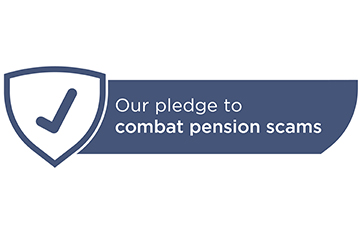You can keep yourself safe from frauds and scams if you know what to look out for. Here are some of the warning signs.
Signs of a scam
Someone:
- contacts you out of the blue. This could be by phone, text, email or by letter.
- pretends to be from a reputable organisation, like the British Coal Staff Superannuation Scheme, and then tries to talk you into giving them personal information. This could be things like your bank details or other details that could help them access your savings.
- puts you under pressure to act quickly.
The British Coal Staff Superannuation Scheme will never:
- Call you unexpectedly
If we need anything from you, we typically get in touch by post first. We’ll only ring you if we’re calling after you’ve got in touch with us or you’ve asked us to call you.
- Put you under pressure to make a quick decision
While there may be times when we need to speak to you about your pension, we won’t put you under pressure to make any quick decisions.
What to do if someone says they are from BCSSS and you think they are trying to scam you
- If they ask you to do something, don’t do it. This includes giving personal information, like bank details.
- If they have called you, put the phone down.
- Call us on 0333 222 0074 or you can email us at BCSSS@capita.co.uk
- We’ll tell you if the person calling was someone on our team. We’ll also talk you through ways you can protect yourself if we think it is a scam.
- Legitimate companies must register with the FCA. You can check if a company is registered here.
- If you think you've been the victim of a scam, report it to Action Fraud. You can find out more here.
How to spot if you’re the victim of identity theft
Identity theft is when someone pretends to be you so they can commit fraud. Sometimes they try to take money from you. But sometimes they just use your identity to defraud someone else.
Here are some signs that you might be the victim of identity fraud:
- Post arrives at your house for someone you don’t know.
- There’s unusual activity in your bank account.
- Your credit rating changes without reason.
- If you think you’re the victim of identity fraud, tell your bank immediately.
How to protect your bank account
- Don’t give your personal information to anyone, unless you have checked they are who they say they are.
- Never tell anyone the PIN number for your debit or credit cards.
- Bank employees will never ask for your full PIN. So if someone tells you they are from a bank and asks you for your full PIN, they are likely to be a scammer.
- Check your bank and credit card accounts regularly. If you see any payments that you do not recognise, report it to your bank immediately.
If you’re on the internet, watch out for phishing scams
If you use the internet or have a mobile phone, scammers can use a technique called phishing to try to defraud you. This mostly involves sending bogus emails or text messages, or tricking people into using fake websites.
These messages look as though they come from reputable organisations. But they are trying to trick you into giving personal information, like your bank account and credit card details.
Here are some tips for protecting yourself from phishing scams:
- Install the latest security software for your computer and browser.
- Use a strong password and don’t use the same password for everything you do.
- Don’t share your passwords with anyone else.
- Check any links before you click on them.
- Don’t open an attachment unless you’re sure it’s from a trusted sender.
- Be suspicious of anyone who asks for your bank or credit card details.
- Watch out for spelling or grammatical mistakes. This can be a sign of a scam.
- Check the address an email is coming from. It might say it’s from someone you trust, but the address shows it’s from someone else entirely.
If you think you are the victim of a scam or fraud, you can report it and get advice by calling Action Fraud on 0300 123 2040.
Anyone can be fooled
Scams are getting increasingly sophisticated. This video from The Pensions Regulator shows how anyone can be a victim of financial crime. And the heartbreaking consequences.
More resources
The Pensions Regulator’s pension scams booklet provides more information on how to protect your pension.
For more information about scams, visit Stop! Think Fraud, a government website with some great advice about how to protect yourself, and how to get support if you've been the victim of a scam.
We’ve created a useful animation about how you can spot a pension scam and tips on where to get more information as well as who to contact if you suspect that you may have been targeted and want to report it.
You can read a transcript of the video here.

We have taken the Pensions Regulator's scams pledge and are committed to combatting pension scams.